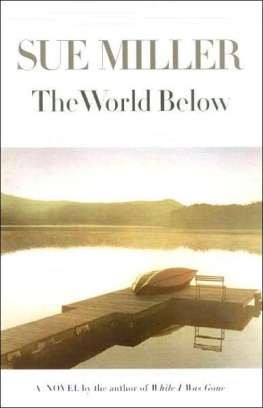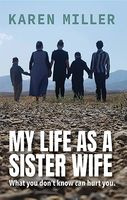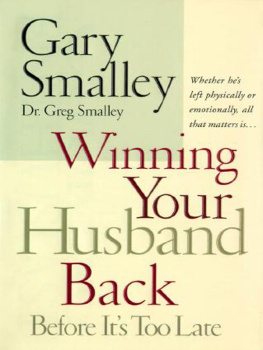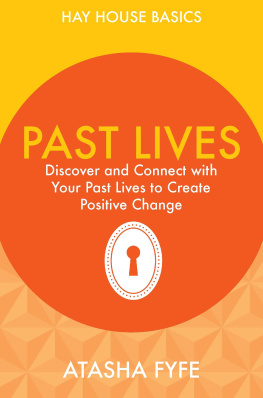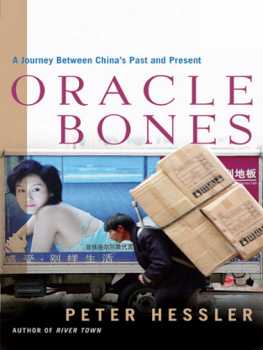While I Was Gone [067-011-4.2]
By: Sue Miller
Category: Fiction general
Synopsis:
In her still startling debut, The Good Mother, Sue Miller explored the premium we put on passionand the terrible burden it places on a mother and child. Her fourth novel, While I Was Gone, is another study in familial crime and punishment. But this time, her wife and good mother is accessory to more than emotional malfeasance. Jo Becker has everything a woman could desire: a loving spouse, contented children, and a nice dog or two. When her New England veterinary practice takes on a new client, however, her past comes back to haunt her. Long ago, it seems, Jo had escaped her family and identity for a commune in Cambridge. Her Aquarian illusions came to an abrupt, bloody end when one of her housemates was brutally murdered.
Now this unhappy era returns in the person of Eli Mayhew, who had been the odd man out in Jos boho household. His appearance is both tantalizing and upsetting: Inside, I slowed down. I felt numbed. I had two last patients, and then I told Beattie to go home, that Id close up. I refiled the last charts, sprayed and wiped the examining table. I reviewed my list of routine surgeries for Wednesday. All the while I was thinking of Eli
Mayhew, and of Dana and Larry and Duncan and me, and our lives in the house. Of the horrible way it had all ended. Sue Millers fine novel is a penetratingand sensuousportrait of a woman besieged by her conscience.
While I Was Gone also demonstrates that in the face of distance and betrayal, a little knowledge can be a dangerous thing indeed.
The New York Times Book Review, Jay Parinia beautiful and frightening book, one that many readers will find difficult to forget.
Acknowledgments.
I am indebted to Detectives Brian P. Branley and John F. Fulkerson, and to SergeantJosephJ. McSweeney, all of the Cambridge Police Department, for taking time to imagine my story with me, and to my brother, David Beach Nichols, D.V.M. animal lover extraordinaire, for his resourceful and painstaking helpthough I alone am to blame for any inaccuracies or unlikely details.
Cedar waxwings dart among the swallows Iridescent f sb with wings, Layers of life above the water.
Under, the trout.
JUDIrH BEACH NICHOLS (19191979) ITs ODD, I SUPPOSE, THAT WHEN I THINK BACK OVER ALL that happened in that terrible time, one of my sharpest memories should be of some few moments the day before everything began.
Seemingly unconnected to what followed, this memory is often one of the first things that comes to me when I call up those weeks, those monthsthe prelude, the long, beautiful, somber note I heard but chose to disregard.
This is it, silence between us. The only sounds the noises of the boatthe squeal of the oarlocks when my husband pulled on the oars, the almost inaudible creak of the wooden seat with his slight motion, and then the glip and liquid swirl of the oars through the water, and the sound of the boat rushing forward.
My husbands back was to me as I lay in the hard curve of the bow.
He sat still a long time between each pull. The oars dripped and then slowly stopped dripping. Everything quieted. Sometimes he picked up his fishing rod and reeled it in a bit, pulling it one way or another.
Sometimes he recast, standing high above me in the boat, the light line whipping wider and wider, whistling faintly in its looping arc across the sky before he let it go.
It was a day in mid-fall, well after the turning of the leaves. The weather was glorious. We always took one day a week off together and if the weather was good, we often went fishing. Or my husband went fishing and I went along, usually with a book to read. Even when the girls were small and it was harder to arrange, we managed at least part of the day alone together. In those early years we sometimes made love in the boat when we were fishing, or in the woodswe had so little time and privacy at home.
It was a Monday. The day off was always Monday, because Sunday was Daniels busiest day at work and Saturday was mine. Monday was our day of rest. And what I recollect of that Monday, that fine fall day, is that for some long moments in the boat, I was suddenly aware of my state, in a way we arent often. That is, I was abruptly and most intensely, sharply aware of all the aspects of life surrounding me, and yet of feeling neither part of it nor truly separated from it.
Somehow impartial, unattachedan observer. Yet sentient of it all. Deeply sentient, in fact. But to no apparent purpose.
If I were trying to account for this feeling, I might say that it had something to do with the way I was half Lying, half sitting on several pillows in the bow, the way the curving walls of the old rowboat framed a foreground for my view as they rose away from me. I saw them, these peeling wooden inner walls, and then my husbands familiar shape. Above him there was the flat, milky-blue sky and sometimes, when we were close enough to shore, the furred, nearly black line of the spruces and pines against it. In the air above us swallows darted-dark, quick silhouettesand once a cedar waxwing moved smoothly through them. Layers of life above me. Below, I could hear the lap of the deep water through the walls of the boat.
As a result, lets say, I felt suspended, waiting.
Between all these worlds and part of none of them.
But this isnt what I really believe, I think the sensation came from somewhere within me.
We feel this way sometimes in adolescence, too, surely most of us can call it up. But then theres the burning impatience for the next thing to take shape, for whatever it is we are about to become and be to announce itself. This was different, there was, I supposed, no next thing.
I had felt something like this every now and then in the last year or so, sometimes at work as I tightened a stitch or gave an injection, the awareness of hanng done this a thousand times before, of surely having a thousand times left to do it again. Of doing it well and thoroughly and neatly, as I liked to do things, and simultaneously of being at a great distance from my own actions.
Or at home, setting the table, sitting down with my husband to another meal, beginning our friendly evening conversation about the daythe house quiet around us, the old dogs dozing under the table or occasionally nuzzling our feet. A sense suddenly of being utterly present and also, simultaneously, far, far away.
Now I stirred, shifted my weight. My husband turned, no aspect of his face not dear to me.
Hurting? he asked.
And with that, as quickly as it had come over me, the moment ended. I was back, solidly in time, exactly where we were. It was getting chilly. I had been lying in the wooden boat for several hours now, and even though I had the pillows under me, I was stiff. I had a bad hip. Replacement had been discussed, though everyone said I was young for it. I liked only that part of the problem, being too young for something.
A little, I said.
Well head back.
Are you sure?
Ive got two reasonable ones. Im a happy man. He began to reel his line in.
I turned and stretched.
How nice, to be a happy man, I said.
He looked over his shoulder at me, to get my tone.
It is nice, he said.
And I meant it, I answered.
As we rowed back, as we drove home, I found myself wanting to tell my husband about my feeling, but then not knowing what to call it.
The shadow of it lingered with me, but I didnt say anything to Daniel.
He would hear it as a want, a need. He would feel called upon to offer comfort. Daniel is a minister, a preacher, a pastor. His business is the care of his flock, his medium is wordsthrilling words, admonishing or consoling words. I knew he could console me, but consolation wasnt what I felt I wanted. And so we drove along in silence, too, and I looked out the window at the back roads that sometimes seemed utterly rural, part of the nineteenth century, and sometimes seemed abruptly the worst of contemporary suburban life, the sere, beautiful old fields carved up to accommodate the too-wide circular asphalt driveways, the too-grand fake-garrison-colonial houses.
Next page

